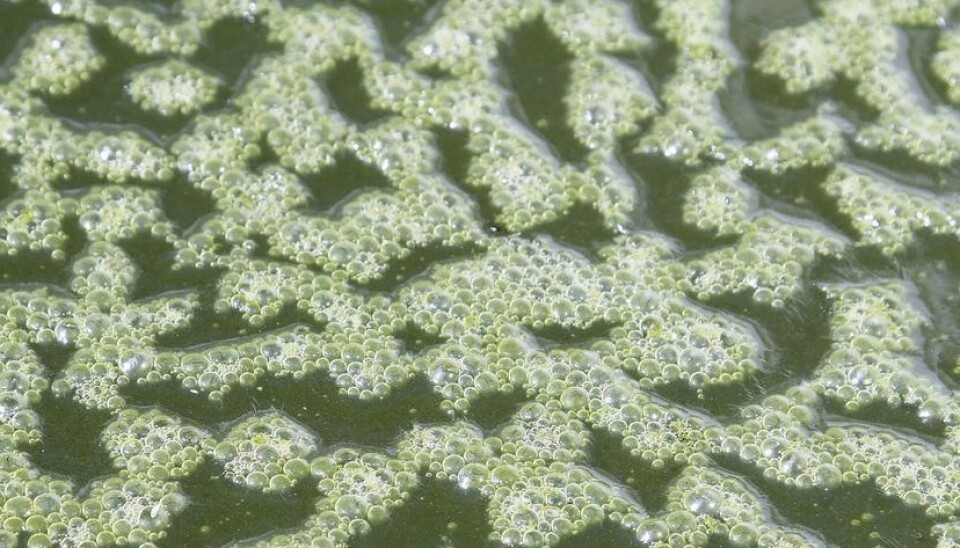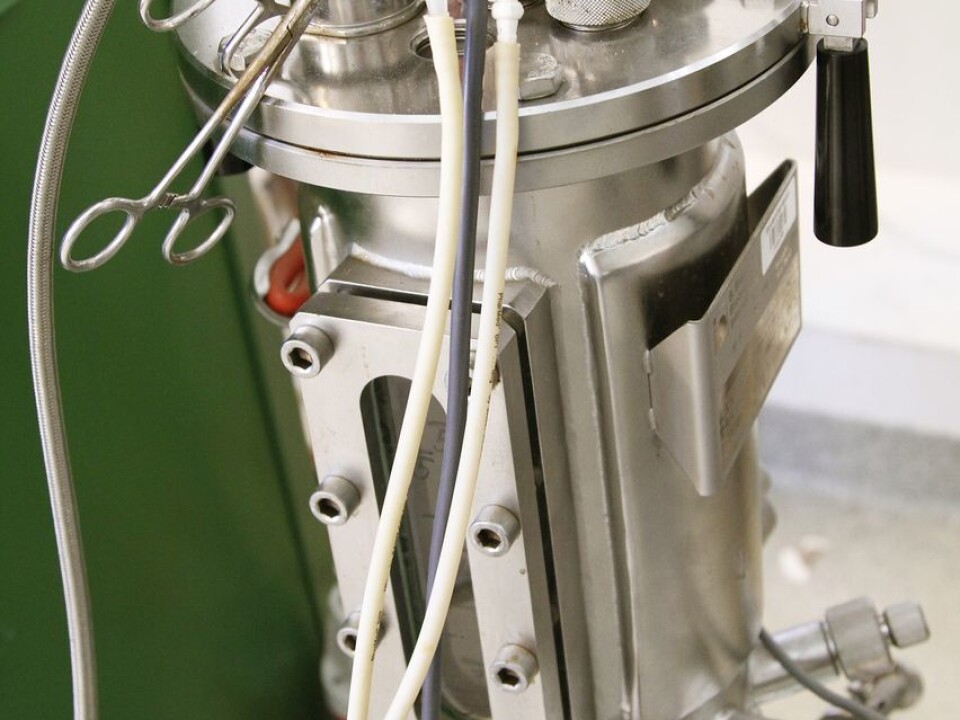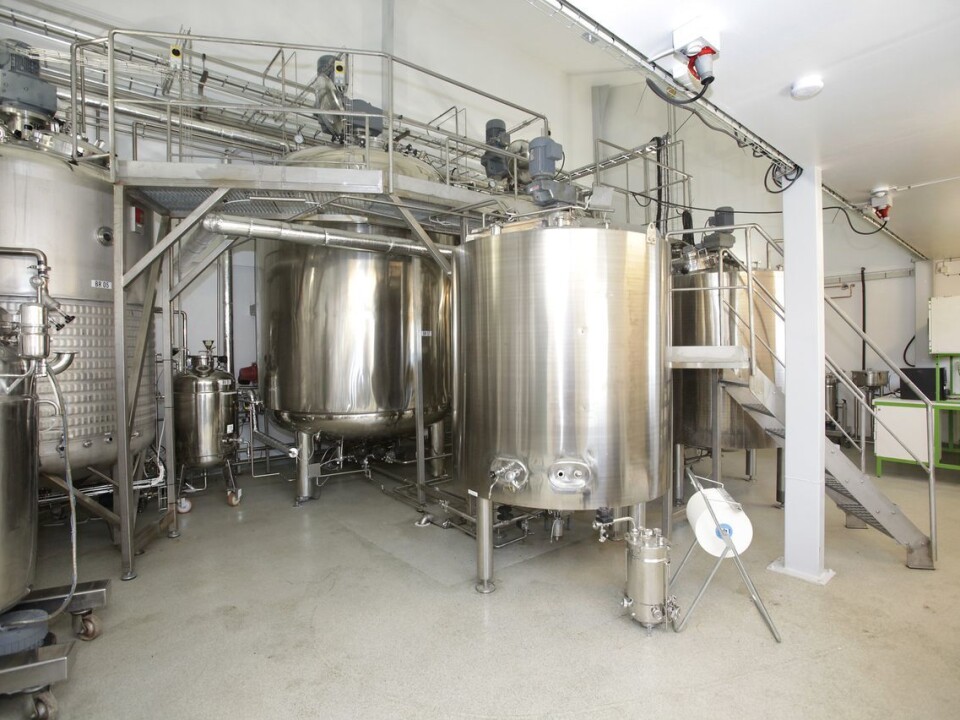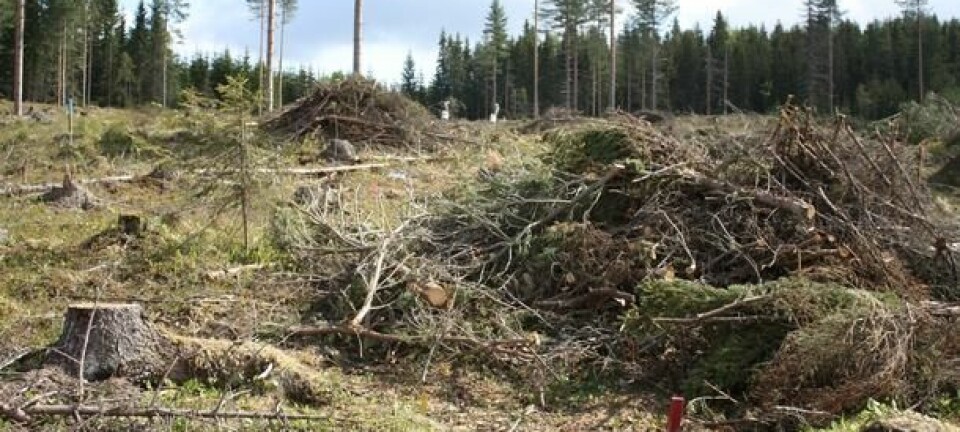An article from NordForsk

A microorganism's day at work
A bacterium cultivated in the highlands of Bolivia meets a microorganism from an alkaline lake in Kenya. Together they create a team of billions of tireless workers that provide humans with fuel for our vehicles or plastic bags to carry our groceries.
Denne artikkelen er over ti år gammel og kan inneholde utdatert informasjon.
Microorganisms such as these are the unsung heroes helping scientists to shape a more environment-friendly society.
What was once literally a pigsty in Skåne in southern Sweden is now the Anneberg biorefinery, a full laboratory with metal tanks and advanced research equipment. The biorefinery is home to a unique collection of microorganisms from around the globe, being put to work breaking down raw materials into natural chemicals that can be used to make products as diverse as fuel, biogas, plastics, food and more. These natural processes of breakdown represent countless opportunities to utilise nature’s resources in efficient, environment-friendly ways.
Many of the products currently coming from the petroleum industry could be produced more environmentally, with lower emissions and less toxic waste.
Nature’s own chemical engineers – bacteria – can do the job. Even the waste from a biorefinery can be broken down and purified. Producing a range of products allows a biorefinery to utilise more of each raw material’s various components.

A biorefinery can churn out chemical products, materials and fuel, all while generating the electricity and process heat it requires. Any leftover raw material can also be converted into biogas, so nothing goes to waste. This keeps energy costs down while reducing emissions of greenhouse gases normally associated with power production.
That kind of efficiency is just what is needed. If the EU is to achieve the energy and climate targets set for 2020, energy consumption and greenhouse gas emissions must be cut by 20 per cent, while 20 per cent of its energy supply must come from renewable resources. This means industry must become more energy-efficient and environment-friendly. There is a growing awareness of the need to steer the economy in a more sustainable direction.
Full potential of bioeconomy has yet to be realised
The term “bioeconomy” has come to describe sustainable production and the conversion of biomass into energy and other necessary products. Making use of all the components of raw materials is a core concept.
Biorefining is a linchpin of the bioeconomy, but its full potential has yet to be realised. One major challenge lies in achieving fast, efficient, industrial-scale production. Many natural breakdown processes begin slowly at first, with productivity accelerating over time. These processes must also be sustainable – environmentally as well as economically – which is where continued research and development are critical.

At the Anneberg research station, part of Lund University, researchers and industry engineers can run pilot projects to produce chemicals from a variety of biomass materials. Several pilot reactors are also available for producing biogas.
“The Nordic countries are in the forefront of this research field. We just need to dare to take on more risk,” says Bo Mattiasson, professor emeritus in biotechnology at Lund University, as he guides his visitors through the research facility. “We in the Nordic countries need to cooperate more in order to succeed internationally.”
Drive farther with biogas
“There has been a lot of talk about bioethanol,” continues Mattiasson.
“Several Nordic public transport companies are in the process of switching over to renewable energy sources. And the debate about using arable land for producing biofuel rather than food is an important one, because many alternatives do exist.”
Researchers at Anneberg have tested numerous types of raw materials, including crop waste such as rotting potatoes and beets from local farms. A variety of anaerobic bacteria are added, which work together to break down and convert what was once worthless matter into valuable biogas.
Producing biogas instead of bioethanol may be a more efficient solution, believes the professor.
“Vehicles running on biogas rather than ethanol can drive nearly twice as far for the same amount of raw materials. If land is scarce, we should be doing what is most energy-efficient.”
Needed in development cooperation
The various microorganisms working together from around the world can be seen as a metaphor for the value of international cooperation. “Biotechnology has such potential in the context of development cooperation,” explains Mattiasson.
While industrialised countries have moved much of their production to developing countries, certain essential expertise such as water purification technology has not followed, leading to some large-scale environmental problems in many developing countries.
So the need for knowledge transfer in the realm of biotechnology is critical, or as the professor puts it, “Biotechnology and development cooperation go hand in hand.”
Bacteria and other microorganisms are brought to the Anneberg biorefinery from all corners of the world. Often the most unique organisms are discovered in the most polluted places, and these are tested at the biorefinery to gauge their effect on the breakdown process. After all, when microorganisms from the entire planet get together, anything can happen.

































